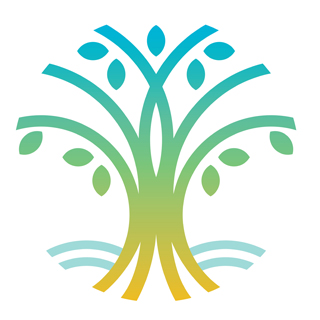Reiki Series: Becoming a Skilled Reiki Practitioner, Part 4 of 4
- Nikki Staley
- Oct 10, 2024
- 3 min read
How to Learn Reiki and Become a Skilled Reiki Practitioner

In the previous articles of our Reiki series, we explored the fundamentals of Reiki, its benefits, and its practical applications in daily life. Now, we turn our attention to how you can embark on your journey to becoming a Reiki practitioner. This final article will guide you through the steps to learning Reiki and provide tips on how to excel as a practitioner.
Getting Started with Reiki
Reiki is a practice that can be learned by anyone interested in holistic healing and personal growth. To become a skilled Reiki practitioner, follow these essential steps:
Find a Qualified Reiki Teacher/Master
The first step in learning Reiki is to find a reputable Reiki Teacher/Master who can guide you through the process. Look for someone who is certified and has experience teaching Reiki. In Australia, Reiki practitioners and teachers are accredited by organisations that help you locate qualified teachers and ensure that they adhere to professional standards.
2. Attend Reiki Classes
There are many different branches of Reiki and Reiki Courses and Classes that you can learn. The system of Reiki can involve three levels. The first level can be referred to as Shoden - Reiki Level I (meaning beginning teachings) and focuses on self-healing and basic techniques for healing others. The second level, Okuden, Level II (means hidden or inner teachings), introduces more advanced techniques and mantras and symbols with an opportunity to develop a professional reiki practice. The third level, Shinpiden - Level III (means mystery teachings) and is for those who wish to teach and attune others to Reiki learning more about the mysteries of life.
3. Practice Regularly
Like any skill, proficiency in Reiki comes with regular practice. After completing your training, dedicate time each day to practice Reiki on yourself and others. This helps deepen your understanding of the energy and improves your ability to channel it effectively. Consistent practice also enhances your intuition and sensitivity to energy shifts.
4. Join Reiki Communities
Connecting with other Reiki practitioners can provide ongoing support and learning opportunities. Join local Reiki groups, attend workshops, and participate in online forums to share experiences and gain insights from others. Networking with fellow practitioners can also help you stay motivated and inspired on your Reiki journey.
Tips for Becoming a Good Reiki Practitioner
To excel as a Reiki practitioner, consider these four key tips:
Cultivate a Strong Personal Practice
A successful Reiki practitioner maintains their own energy health and balance. Regular self healing and meditation are crucial for staying centred and attuned to Reiki energy. The Australian Journal of Holistic Nursing emphasis that self care and personal energy management are essential for effective practice and client care.
2. Develop Compassion and Empathy
Reiki is not just about technique, its also about the practitioner's ability to connect with others on an emotional level. Cultivate compassion and empathy to better understand and support your clients. Research published in the International Journal of Complementary Medicine stresses that maintaining professional boundaries is essential for ethical practice and client trust.
4. Maintain Professional Boundaries
As a Reiki practitioner, it's important to establish and maintain clear professional boundaries with your clients. This includes respecting their privacy, avoiding dual relationships, and providing a safe and supportive environment. The Australian Journal of Complementary Medicine stresses that maintaining professional boundaries is essential for ethical practice and client trust.
Embarking on the path of learning Reiki and honing your skills as a practitioner is a transformative process that encompasses personal and professional development. Through connecting with a reputable Reiki instructor, participating in classes, dedicating time to daily practice, and actively engaging with the Reiki community, you can acquire the necessary expertise and self-assurance to thrive in this therapeutic field. It is essential to nurture a consistent personal routine, nurture empathy and compassion, embrace continuous learning, and establish professional boundaries to elevate your effectiveness as a Reiki practitioner. By approaching Reiki with commitment and mindfulness, it has the potential to evolve into a powerful instrument for healing and personal growth, benefiting both yourself and those you help.
Have you taken a reiki course before? What level in reiki did you attain? What are the biggest challenges you face as a practitioner and how do you overcome them?
If you would like to learn more about our Reiki Courses or would like to have a treatment, you can book in with Nikki Staley, Reiki Master, Holistic Counsellor and Metaphysician who is co-owner at Surf Coast Health and Wellbeing Clinic in Torquay. Book here.





Comments